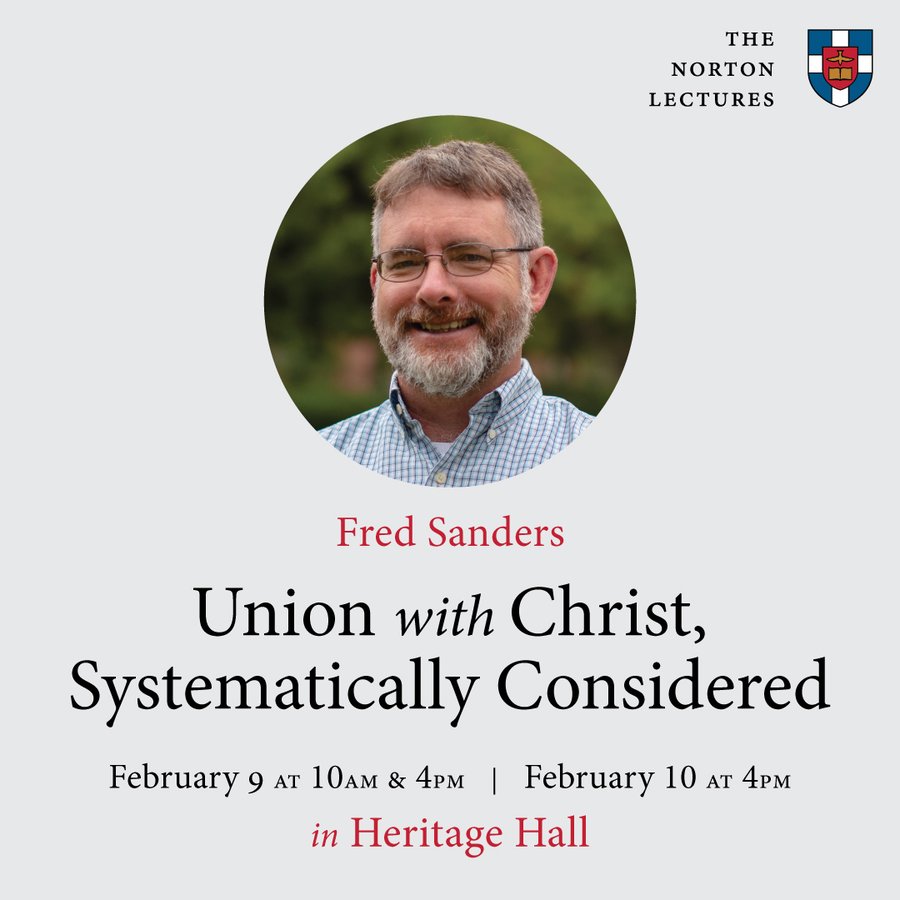A scene from The Canterbury Psalter (12th century)
Blog
Union with Christ, Systematically Considered

I’m giving the 2022 Norton Lectures at Southern Baptist Theological Seminary. (I’ll update this page with links as they become available.) The title I’ve chosen for the suite of three lectures is “Union with Christ, Systematically Considered.”
Series Description: Nobody can do full justice to the doctrine of union with Christ, but the most insightful treatments of the theme throughout Christian history have in common a certain centripetal energy, a center-seeking tendency that strives to recognize this doctrine as soteriologically fundamental. My goal in these lectures is to join that movement by examining how the truth of union with Christ shapes not only the doctrine of salvation in the narrower sense (including the ordo salutis), but also the overall Christian creed and even the basic forms of Scripture itself. Though necessarily only accomplishing an initial approach, these lectures are an effort to place the doctrine of union with Christ at the controlling center of soteriology.
Lecture 1: A Creedal and Credible Account of Union with Christ: While it makes sense to speak about the Christian doctrine of God or the incarnation, it seems less believable to assert that there is such a thing as one, single Christian doctrine of salvation. Surely soteriology must be a field of tremendous divergence and even conflict among Christian traditions and schools of thought. In this lecture, by way of establishing historical bearings, I argue that there is in fact such a thing as a common Christian account of what salvation is. It is a characteristic way of approaching Christ unitively, paying a particular kind of attention to Christ himself. This Christian approach is what has generated creeds, councils, and contemplation that deserve to be recognized as the Christian doctrine of salvation.
Lecture 2: Evangel and Epistle on Union with Christ. This lecture investigates the doctrine of union with Christ by attending to the genres in which it is primally and permanently expressed. It is obvious enough that faith in Christ gave rise to written accounts of his life and teachings, but these written accounts are unlike conventional lives in ways that are theologically significant. They are meant to be read in the presence of their subject, in such a way that historical account of Christ and the actual spiritual presence of the risen Christ converge on the reader (both the implied reader and the actual reader). Apostolic epistles are a secondary genre, whose argumentative structure is best apprehended as offering a supportive account of the significance of the life manifested in the Gospels. Learning from these genres, we consider what the most appropriate genre for contemporary accounts of union with Christ might be.
Lecture 3: A Comparative and Constructive Confession of Union with Christ. John Calvin wrote, “as long as Christ remains outside of us, and we are separated from him, all that he has suffered and done for the salvation of the human race remains useless and of no value for us.” This classic pedagogical move, of positing a conceptual interval between salvation accomplished and applied, draws our attention to the decisive issue of how that gap is filled. Speaking comparatively, several competing answers have been offered, which this lecture will canvass. Speaking constructively, the most satisfactory answer appeals to the deep, trinitarian background of soteriology, tracing how the same Father who put salvation into Christ is the one who draws us to Christ through the Spirit. A compelling but not especially tidy ordo salutis arises from this, containing both forensic and transformative aspects of salvation.
About This Blog

Fred Sanders is a theologian who tried to specialize in the doctrine of the Trinity, but found that everything in Christian life and thought is connected to the triune God.


